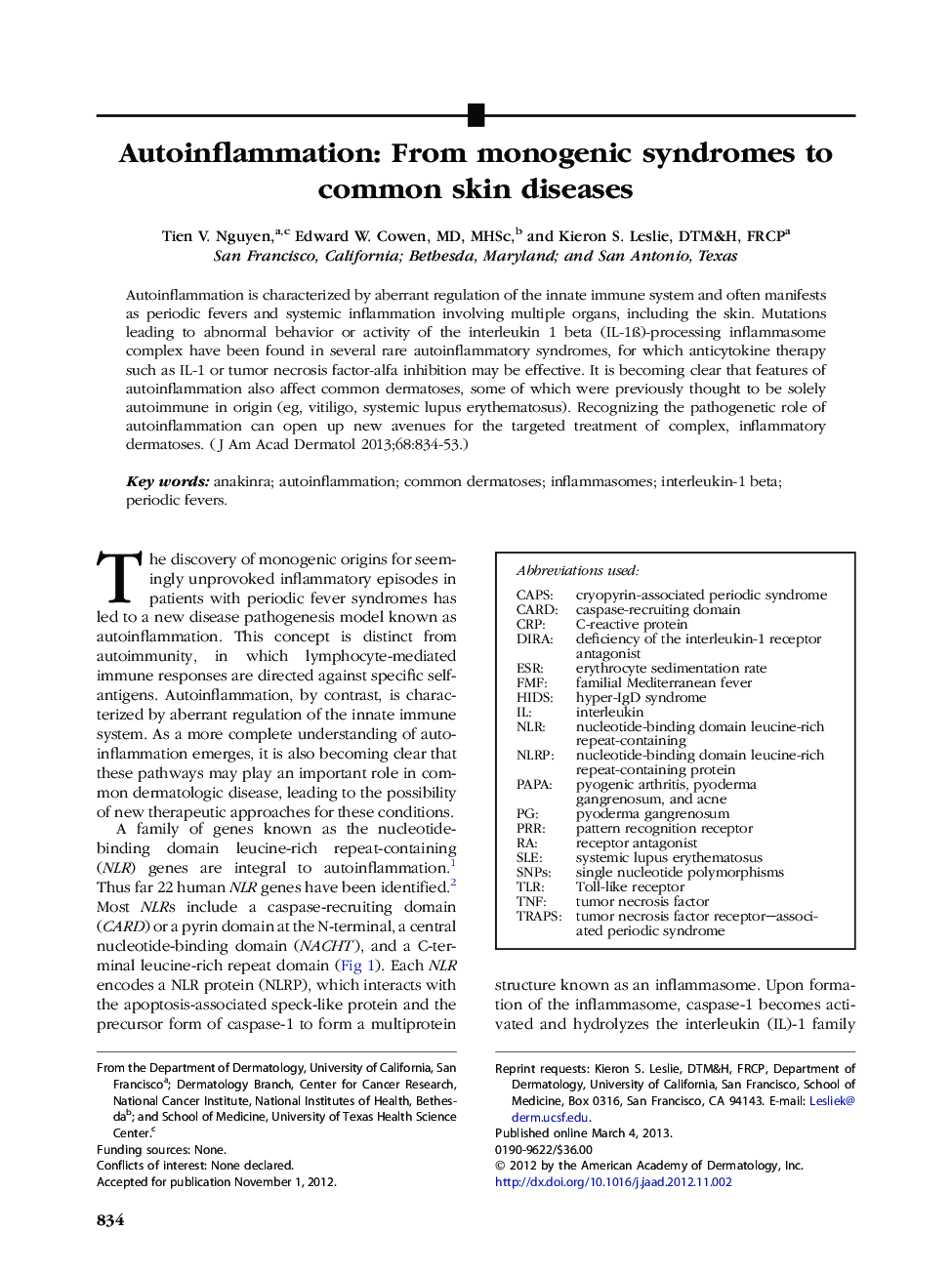| Article ID | Journal | Published Year | Pages | File Type |
|---|---|---|---|---|
| 6073682 | Journal of the American Academy of Dermatology | 2013 | 20 Pages |
Abstract
Autoinflammation is characterized by aberrant regulation of the innate immune system and often manifests as periodic fevers and systemic inflammation involving multiple organs, including the skin. Mutations leading to abnormal behavior or activity of the interleukin 1 beta (IL-1Ã)-processing inflammasome complex have been found in several rare autoinflammatory syndromes, for which anticytokine therapy such as IL-1 or tumor necrosis factor-alfa inhibition may be effective. It is becoming clear that features of autoinflammation also affect common dermatoses, some of which were previously thought to be solely autoimmune in origin (eg, vitiligo, systemic lupus erythematosus). Recognizing the pathogenetic role of autoinflammation can open up new avenues for the targeted treatment of complex, inflammatory dermatoses.
Keywords
Pyoderma gangrenosumPyogenic arthritis, pyoderma gangrenosum, and acneTNFDIRAPeriodic feversHyper-IgD syndromeHIDSAutoinflammationNlrpFMFNLRCAPSPRRESRPAPASNPsTLRanakinraReceptor antagonistinflammasomesinterleukinInterleukin-1 betaFamilial Mediterranean feverTrapsToll-like receptorerythrocyte sedimentation rateCryopyrin-associated periodic syndrometumor necrosis factorSystemic lupus erythematosusSLEC-reactive proteinCRPSingle nucleotide polymorphismsCARDPRR, Pattern recognition receptor
Related Topics
Health Sciences
Medicine and Dentistry
Dermatology
Authors
Tien V. Nguyen, Edward W. MD, MHSc, Kieron S. DTM&H, FRCP,
